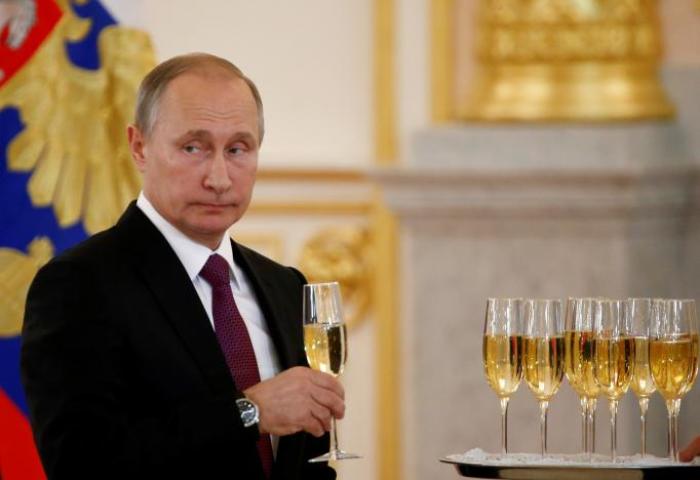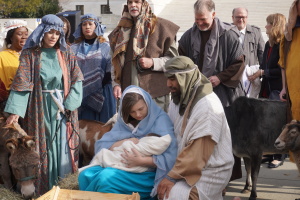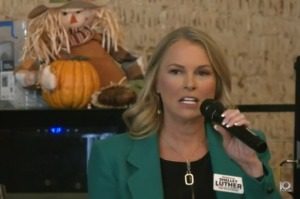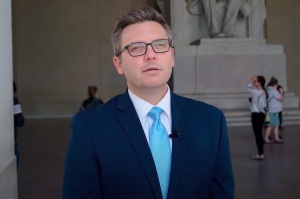4 Things The Washington Post Got Wrong About Christian Conservatives and 'Putin's Russia'

In its Monday edition, The Washington Post published a front-page article that attempted to show how some Christian conservatives in the United States, including Franklin Graham, are building Russian ties and starting to view Russian President Vladimir Putin "as a potential ally."
The article, "Guns and religion: How American conservatives grew closer to Putin's Russia," was co-written by Post reporters Rosalind Helderman and Tom Hamburger and is largely based off the premise that a number of prominent conservative activists — whether they are social conservative, pro-family advocates or leaders at the National Rifle Association — are starting to forge relationships with fellow activists trying to advance similar causes in Russia.
In what seems to be an attempt to link American conservatives' growing relationships with Russian family and gun activists to some sort of support for Putin, the report left out crucial details on where Christian leaders like Graham and the National Organization for Marriage's Brian Brown stand when it comes to Russia.
1. The report ignores one glaring fact about Graham and Russia.
In its reference of Graham, the son of legendary evangelist Billy Graham and president of the Billy Graham Evangelistic Association, the Post article explains that Graham met with Putin in 2015.
The article also seems to imply that Graham's "takeaway" from his meeting with Putin is that he is a "potential friend."
The article states:
"But [Donald] Trump, who at the time was considered a long shot for the nomination, echoed a sentiment then bubbling up from some corners of the conservative grass roots — that Putin was a potential friend."
That was the takeaway for Graham, the North Carolina-based evangelist, after his November 2015 Kremlin meeting with Putin.
The last time Graham had visited Moscow, with his father, Billy Graham, in the 1980s, the practice of religion was prohibited. On this trip, he said, conditions for Christians in Russia remained difficult. But Graham recalled that Putin listened as he described evangelical Christianity and the challenges facing Christians around the world. Putin explained that his mother kept her Christian faith even during the darkest days of atheistic communist rule."
The article goes on to quote Graham as explaining that Putin "understood" challenges facing evangelicals around the world because of the struggles his mother went through to keep her faith.
Additionally, the article points out that Putin offered to help Graham organize BGEA's international summit for Christian persecution in Moscow. Although the Washington Post article mentioned that a Russian delegation is expected to attend the conference when it takes place later this month in Washington, D.C., it fails to explain why the conference was moved from Moscow to D.C. in the first place.
The BGEA World Summit In Defense of Persecuted Christians, to be held May 10-13, was originally scheduled to be held in Moscow last October. However, Graham announced last August that the summit had been moved out of Russia and rescheduled after the Russian government passed a law that severely restricts the religious freedom of evangelists and missionaries — a law that has been described as a ban on evangelism.
"The decision to move the conference out of Moscow doesn't exactly sound like Russia has Graham in its back pocket. Why not include that vital context in the Post story?" Bobby Ross Jr. wrote on GetReligion.org. "Could it be, as the reader suggested, 'because that reason undermines the narrative of the article?'"
Graham could not be reached for comment before press time.
2. Report uses select quotes from Christian right leader's interview.
Brown, a well known conservative traditional marriage advocate who is also the president of the World Congress of Families, was interviewed for the article.
The article points out that Brown has traveled to Russia four times in the last four years and testified before the Russian legislature when Russia passed anti-LGBT laws.
However, Brown told The Christian Post that he feels the article mischaracterizes him as being a "patsy for Putin," when in reality he is just building relationships with the Russian people and Russian pro-family and pro-life groups.
"It's a classic example of a reporter writing the story she wants to write, rather than that story that I gave her," Brown said. "Part of it is true that we are fostering increased dialogue between pro-family activists in Russia and the United States. That is what we do at the World Congress of Families. We need dialogue and we need to increase the pro-life, pro-family base all around the world. Russia is obviously an important country and it has gone through major changes in the wake of the breakdown of the Soviet Union."
"The reality is that you had an abortion rate in Russia of 4 million babies per year. We are now down to roughly 2 million. That is something to be praised. We are working with allies in Russia to do what we can to help and praise them. This is not about any one figure," he added. "This is not about Putin or any particular member of government. It's about a change in an opening up of dialogue and a realization that we have many shared values with the Russian people."
Brown also asserted that he "repeatedly" said in his interview with the Washington Post that this is "not about Putin." He added that he has not been afraid to criticize Russian leaders when they do something he disagrees with.
"This is about dialogue with the Russian people," Brown assured.
3. Report neglects to mention that social conservative activists in U.S. build relationships with allies worldwide, not just Russia.
Brown, who will lead the World Congress of Families in Budapest, Hungary on May 26-28, tells CP that it is not only his kindred spirits in Russia that he and other American pro-family and pro-life advocates are building relationships with. However, it's their relationships with Russians that seem to be getting all the media attention.
"[We are] meeting with folks from Taiwan, Singapore and Africa. The press is not interested in that. What the [mainstream] press is interested in ... is painting a picture of conservatives being co-opted by the Russians. It's really silly," Brown explained. "As I said, we are working with people all over the world. We are not going to be ashamed or scared that includes Russia."
"The Russian people are not our metaphysical enemy," Brown continued. "We need to unite with people all over the world. There are good things that are happening in Russia. There are bad things happening too but there are very good things happening."
4. Report tries to connect U.S. conservatives' dialogue with Russians to Russia's alleged tampering in 2016 U.S. presidential election.
In the report, the writers make a halfhearted attempt to link the increasing dialogue between U.S. conservatives and Russian allies advancing the same causes in their country to Russia's alleged involvement in trying to undermine the 2016 presidential election.
In paragraph 11 of the report, the reporters wrote that "the growing dialogue between Russians and U.S. conservatives came at the same time experts say the Russian government stepped up efforts to cultivate and influence far-right groups in Europe and on the eve of Russia's unprecedented intrusion into the U.S. campaign, which intelligence officials have concluded was intended to elect Trump."
At least the article reports that "Russians and Americans involved in developing new ties say they are not part of a Kremlin effort to influence U.S. politics."
The article seems to leave readers with the impression that evangelicals and social conservatives have an affinity for Putin. However, it doesn't mention the numerous times that prominent evangelicals have been critical of Putin's policies.
For instance, Johnnie Moore, an evangelical humanitarian and member of Trump's evangelical advisory board, recently told The Christian Post that the recent recommendation from the United States Commission on International Religious Freedom for the State Department to list Russia as a "country of particular concern" because of its severe religious freedom violations would be an "appropriate" measure to take considering the Russian government's recents bans on evangelism and Jehovah's Witnesses.
"I absolutely believe that Russia's efforts to marginalize evangelicals and ban Jehovah's Witnesses reflect a hugely alarming change in opposition to democracy in favor of totalitarianism and the defiance of religious liberty," Moore said. "Those actions need to responded to forcefully by the world and it is absolutely appropriate to designate them as USCIRF has."
Also, The Washington Post article overlooks the fact that an American pastor was charged and convicted last August with violating the Russia's "anti-terrorism" law passed last year that bans evangelism.
Additionally, prominent Christian conservative and leading Southern Baptist ethicist Russell Moore and Rick Warren's wife, Kay, have been very critical of a law signed by Putin in 2012 that bans the adoption of Russian children by families in the U.S.
"These kids age out of the system, to a life most often of despair, drugs, or suicide," Moore wrote on Twitter earlier this year. "And evangelicals who would serve them are harassed by the government and the culture for their convictions."




























